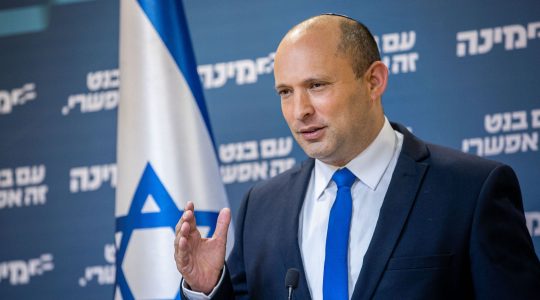
Leader of the of the Joint Arab list, Ayman Odeh, seen during a special session with Indian president Pranab Mukherjee at the Knesset in Jerusalem, Oct.14, 2015. (Yonatan Sindel/Flash90)
(JTA) — The chairman of the Joint List party in Israel will hold groundbreaking talks during a U.S. visit with senior White House and State Department officials.
Knesset member Ayman Odeh, who begins his visit Monday night, will be the first prominent representative of Israel’s Arab community to engage in high-profile diplomatic talks in Washington, D.C., according to Ynet.
Along with the talks, Odeh will attend an event in his honor hosted by American Jewish billionaire S. Daniel Abraham, a champion of coexistence between Arabs and Jews. The lawmaker will also speak with media outlets such as The New York Times and the Washington Post, and meet with civil rights leaders at the Atlanta church of slain civil rights leader Martin Luther King Jr.
“The issues that matter to Israel’s Arab citizens are hardly represented in the international conversation,” Odeh told Ynet. “I’m going to the U.S. to bring that voice with me to influencing sources and opinion leaders, and to create contacts and connections with the progressive and civil rights movements.”
The Joint List, a union of the Arab parties in Israel, was formed in the lead-up to elections in March and is now the country’s third largest political party.
Odeh has been criticized for failing to condemn Palestinian attacks on Israeli civilians in recent months.
Asked on Israeli radio in October if throwing rocks is a legitimate form of protest, he said, “I always blame the occupation for being guilty. I cannot tell the nation how to struggle, where and at which target to throw the rock.”
JTA has documented Jewish history in real-time for over a century. Keep our journalism strong by joining us in supporting independent, award-winning reporting.





